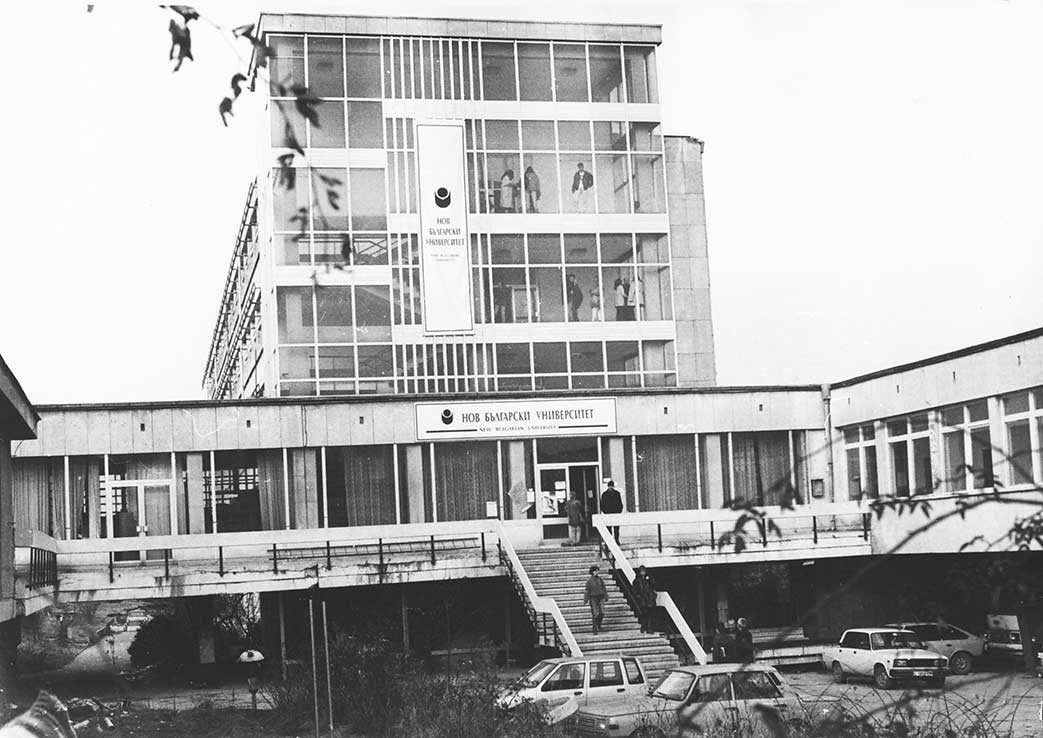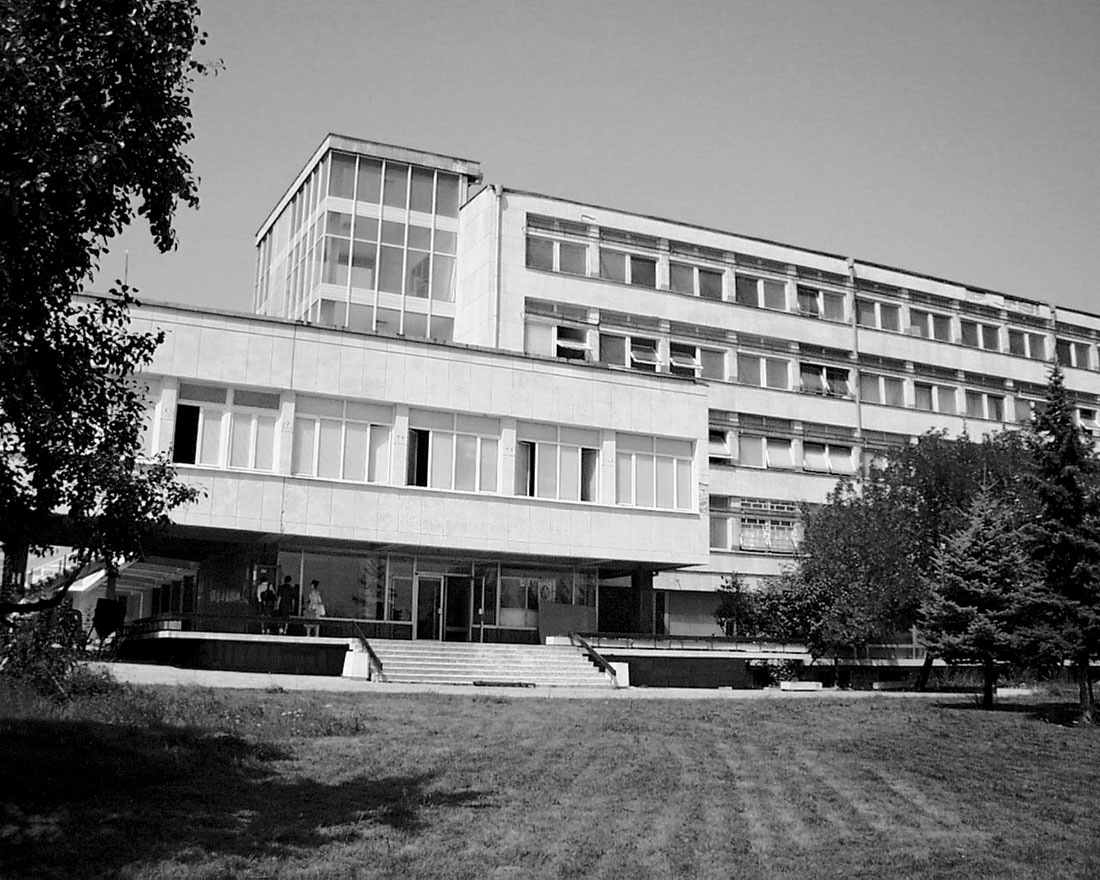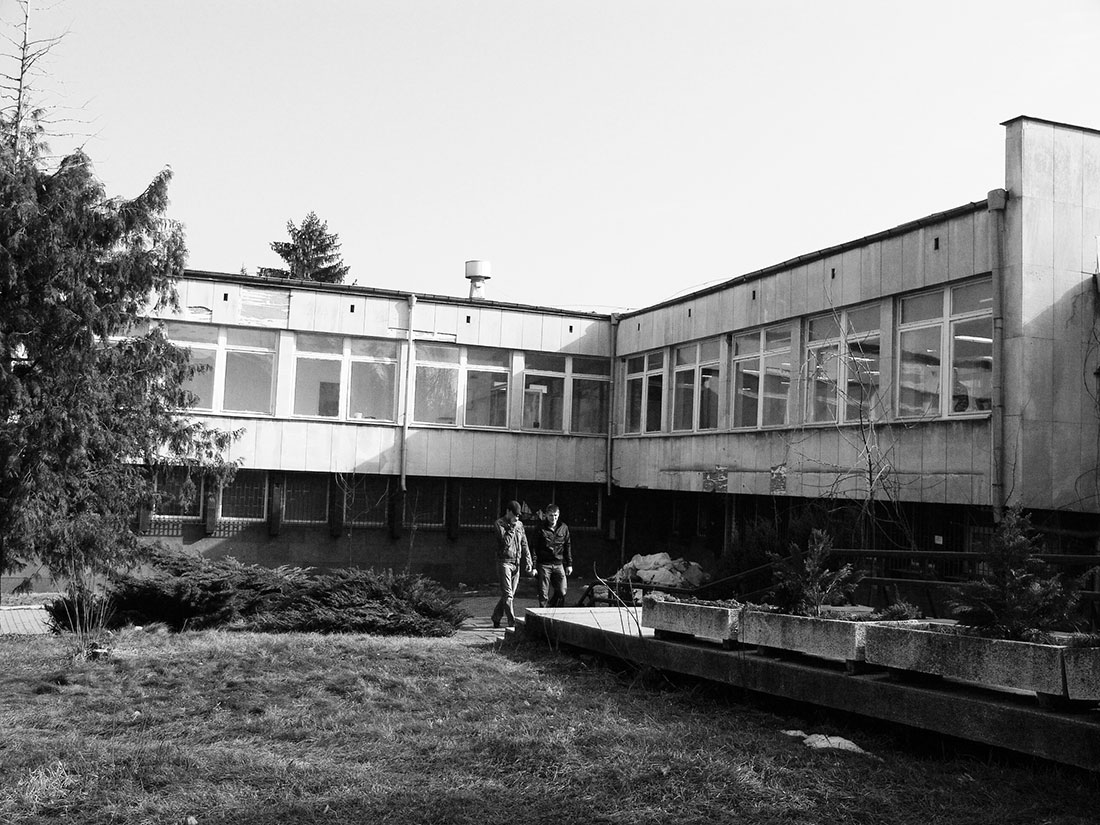History
In July 1989, a group of higher education scholars and researchers set up a Society for a New Bulgarian University aimed at reforming the system of Bulgarian higher education. On 18 September 1991, the Society was awarded university status under the name of New Bulgarian University with a resolution by the Bulgarian Parliament.
In 1991-1993, during the first period of NBU’s development, efforts were focused on putting in place the various aspects of its organizational structure and communications strategies. On 17 October 1991, the General Meeting of the Society met in order to name the members of a Provisional Board of Trustees. Professor Bogdan Bogdanov was elected President and acting Rector. The Provisional Board of Trustees was instrumental in preparing university development strategy and action plan documents and shaping its academic policy and staff.

In 1991–1992, the School of Free Studies and the Correspondence School (also known as the RadioUniversity) were established to offer full-time and distance learning courses and qualification programs. Departments were set up within the School of Free Studies as University’s academic and research units.
During this period, the programs of study were experimental and professionally oriented. The introduction of a credit system stimulated student mobility and enhanced NBU’s integration into the local and international academic community.

On 14 March 1994, during the second period of NBU development (1993–1998), the NBU Bylaws and Regulations were adopted laying down the University organizational structure and defining its forms of governance and self-governance. The University adopted a bicameral governance structure with two legislative bodies where the responsibility for administrative and fiscal matters is assigned to the Board of Trustees, and the responsibility for academic matters is assigned to the Academic Council. Prof. Bogdan Bogdanov assumed the position of President of the Board of Trustees, and Prof. Ivanka Apostolova was elected Rector of NBU. The University Board of Trustees included, apart from ex-officio members, representatives of local authorities, industry, business and NGOs.
In 1993, a broad range of programs of study were created and offered through the newly established Schools of Regular and Doctoral Studies. New Bulgarian University pioneered the introduction in Bulgaria of Bachelor’s, Master’s and Doctoral degrees. Foundations were laid for the establishment and development of Departments as academic communities bringing together faculty and researchers working in the same subject area and responsible for monitoring and assuring the quality of faculty and programs of study. Local NBU centers were set up outside Sofia, first in Varna, Plovdiv and Veliko Tarnovo, followed by those in Vidin and Vratsa.
In mid-1990s, efforts were undertaken to put NBU governance and operations on a solid planning basis. In 1997, NBU’s first planning document entitled Self-Assessment and Institutional Development Document was prepared with the help of international experts in a series of seminars, meetings of working groups and University-wide conferences.

The 1999/2000 academic year saw the launch of 16 general education programs acting as the gateway to a Bachelor’s degree. The liberal education approach was discussed at conferences such as University-wide Education: Objectives and Necessity and Program of Study at NBU: Policies and Procedures as well as with Salzburg Seminar representatives.
The National Accreditation and Assessment Council, which reviews Bulgaria’s higher education teaching, granted NBU maximum accreditation of six years in three consecutive accreditations in 2001, 2006 and 2012.
The General Education Program in Artes Liberales was launched in the academic year 2001/2002 organized around a core of elective courses in major areas of knowledge. There was a strong tendency to introduce the liberal arts approach into other general education programs. Minor programs were introduced at the School of Undergraduate Studies available to students enrolled in major programs. Programs at the School of Graduate Studies were reviewed to achieve a more focused specialization. The NBU Schools launched the process of creating a wider range of distance learning courses to be offered alongside traditional face-to-face ones. In September 2001, Raina Kabaivanska conducted her first opera singing master class at New Bulgarian University.
In 2002 Assoc. Prof. Sergei Ignatov, PhD was elected Rector of NBU.
In the academic year 2003/2004, the University made a new program reform in the direction of liberalization of education, including the basic programs in the bachelor's degree and created 24 bachelor's programs.
In 2010, the program reform deepened: in the first two years of bachelor's programs, a general education degree was introduced, while new ones were created and reached 54.
In November 2009 Prof. Sergey Ignatov, Ph.D. became Minister of Education, Youth and Science, and Prof. Dr. Lyudmil Georgiev becomes Rector of NBU.
In March 2012, Assoc. Prof. Dr. Plamen Bochkov was elected Rector of the New Bulgarian University.
In July 2020, Prof. D.Sc. Plamen Doynov becomes Rector of NBU.
